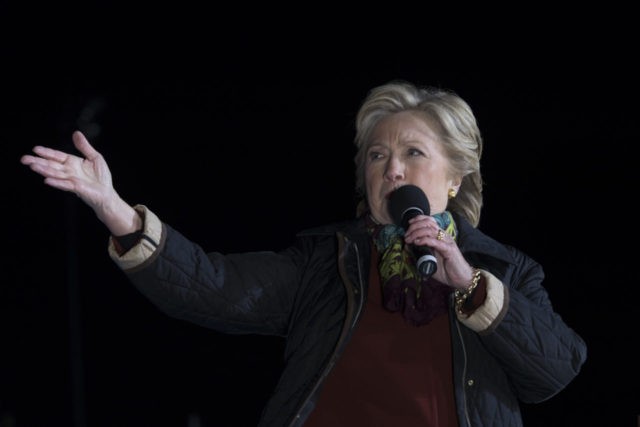The New York Times editorial page warns this weekend that Hillary Clinton is dangerous because of her “establishmentarian type of folly.”
The dangers of a Hillary Clinton presidency are more familiar than Trump’s authoritarian unknowns, because we live with them in our politics already. They’re the dangers of elite groupthink, of Beltway power worship, of a cult of presidential action in the service of dubious ideals. They’re the dangers of a recklessness and radicalism that doesn’t recognize itself as either, because it’s convinced that if an idea is mainstream and commonplace among the great and good then it cannot possibly be folly.
Almost every crisis that has come upon the West in the last 15 years has its roots in this establishmentarian type of folly. The Iraq War, which liberals prefer to remember as a conflict conjured by a neoconservative cabal, was actually the work of a bipartisan interventionist consensus, pushed hard by George W. Bush but embraced as well by a large slice of center-left opinion that included Tony Blair and more than half of Senate Democrats.
Likewise the financial crisis: Whether you blame financial-services deregulation or happy-go-lucky housing policy (or both), the policies that helped inflate and pop the bubble were embraced by both wings of the political establishment. Likewise with the euro, the European common currency, a terrible idea that only cranks and Little Englanders dared oppose until the Great Recession exposed it as a potentially economy-sinking folly. Likewise with Angela Merkel’s grand and reckless open-borders gesture just last year: She was the heroine of a thousand profiles even as she delivered her continent to polarization and violence.
This record of elite folly — which doesn’t even include lesser case studies like our splendid little war in Libya — is a big part of why the United States has a “let’s try crazy” candidate in this election, and why there are so many Trumpian parties thriving on European soil.
The New York Times has endorsed Hillary Clinton, with an endorsement that sounded remarkably similar to Clinton campaign literature.
The Clinton campaign is running commercials showing a woman saying that she does not agree broadly with Clinton, “but she’s reasonable.” Oprah Winfrey endorsed her as well, saying, “You don’t have to like her.”

COMMENTS
Please let us know if you're having issues with commenting.